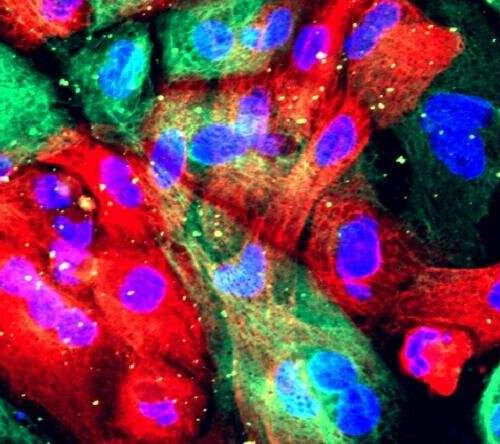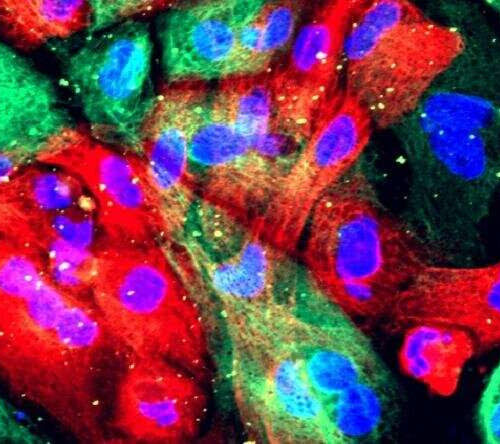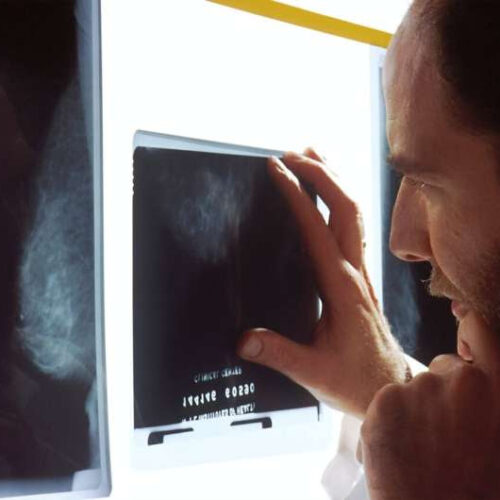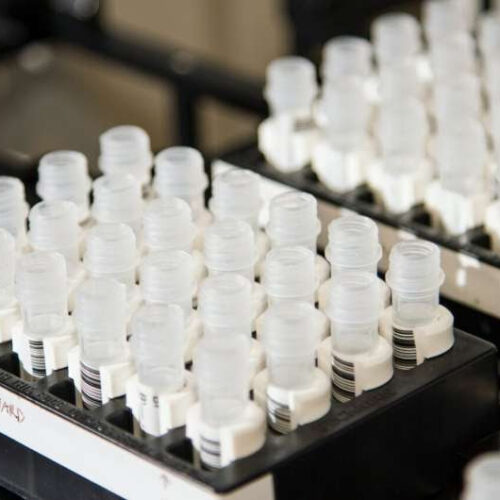TAYLOR & FRANCIS GROUP Hormone therapy for prostate cancer increases the risk of cardiovascular disease-related death especially in older men, according to a population study involving more than 13,000 patients. The paper, published today in the peer-reviewed journal. The Aging Male, found an elevated risk of death from cardiovascular disease for men with prostate cancer...
Tag: <span>Prostate cancer</span>
New imaging technology less accurate than MRI at detecting prostate cancer, trial shows
by European Association of Urology Prostate cancer cells. Credit: NIH Image Gallery A team of researchers in Australia and New Zealand has found that MRI scans can detect prostate cancer more accurately than the newer, prostate-specific -PSMA PET/CT scanning technique. The findings are being presented today at the European Association of Urology’s annual congress (EAU22), in...
Gut microbes differ in men with prostate cancer
EUROPEAN ASSOCIATION OF UROLOGY Researchers have found a significant difference in the gut microbiota of men with prostate cancer, compared with those who have benign biopsies. The study is presented at the European Association of Urology annual congress (EAU22), in Amsterdam. Although the finding is an association, it could partly explain the relationship between lifestyle...
Scientists blend AI, 3D tissue imaging to identify aggressive prostate cancer
Researchers at Case Western Reserve University and the University of Washington expect to gain valuable new insights into highly aggressive prostate cancer by combining Artificial Intelligence (AI)-powered diagnostic imaging with three-dimensional (3D) tissue imaging. This new AI-3D collaboration will provide a never-before-seen, expanded view and understanding of prostate cancer cells, made possible by a new approach...
High-intensity focused ultrasound (HIFU) can control prostate cancer with fewer side effects
by Memorial Sloan Kettering Cancer Center Behfar Ehdaie said the new treatment approach is like a “male lumpectomy.” Instead of removing all the tissue in a breast or prostate, doctors have learned “it is safe and effective to treat specific areas and greatly reduce the burden on patients.”. Credit: Memorial Sloan Kettering Cancer Center In...
Scientists identify new—and very common—subtype of prostate cancer
by Memorial Sloan Kettering Cancer Center Prostate cancer cells. Credit: NIH Image Gallery A previously unknown subtype of hormone-resistant prostate cancer accounts for about 30% of all cases, according to a new study from a team of scientists at Memorial Sloan Kettering Cancer Center (MSK) and Weill Cornell Medicine, published May 27, 2022, in the...
New combined therapy helps extend lives of men with prostate cancer
by Cedars-Sinai Medical Center Credit: Unsplash/CC0 Public Domain Practice-changing research from Cedars-Sinai Cancer shows that a combination of androgen deprivation therapy—a commonly used hormone injection—plus pelvic lymph node radiation, kept nearly 90% of clinical trial patients’ prostate cancer at bay for five years. The findings were published in the peer-reviewed journal The Lancet. The study also...
Common prostate cancer medications may be less safe than previously thought
Men taking either of the two most common oral medications for advanced prostate cancer who had also undergone hormone therapy to treat their disease were at higher risk of serious metabolic or cardiovascular issues than patients who were only receiving hormone therapy, Michigan Medicine researchers found. Patients taking abiraterone had 1.77 times the risk of...
Men with prostate cancer have higher risk of serious blood clots
BMJ New research published in the online journal BMJ Open suggests that men with prostate cancer have a 50% higher risk of developing serious and potentially fatal blood clots during the five years after their cancer diagnosis compared with men of the same age without prostate cancer. Although the level of risk is lower than...
New regulator of prostate cancer metastasis discovered
by Will Doss, Northwestern University Credit: Unsplash/CC0 Public Domain A transcription factor normally associated with androgen receptor activity in prostate cancer has a newly discovered role in controlling lipid biosynthesis, according to a Northwestern Medicine study published in Nature Genetics. The transcription factor, called HOXB13, is downregulated in late-stage prostate cancer, unleashing lipid biosynthesis and fueling cancer metastasis, according...





